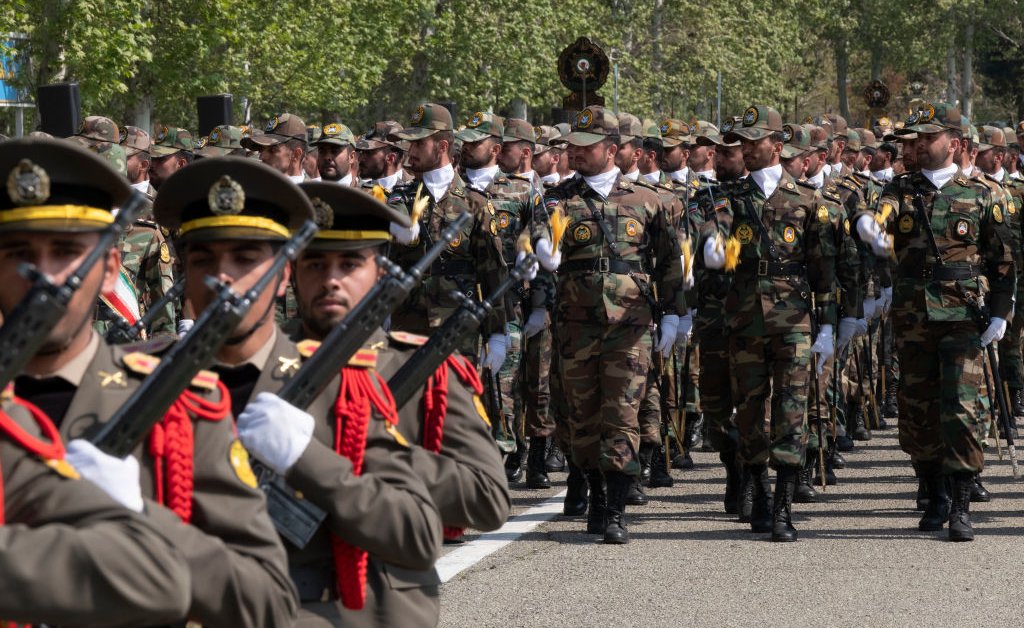Iran’s attack on Israel was an unprecedented show of force. Though Iran telegraphed the attack in advance, with most drones and missiles intercepted in the air, the attack was a game changer and signals much higher risk of escalation in the future. The shadow war is a shadow war no longer.
But the show of force was also precisely that—a show, choreographed and designed largely to project power without actually causing damage. Though it has signaled it will use its own forces to defend itself and its interests, the regime in Iran is still wary of starting a bigger fight.
And the reason is simple: such a fight would damage Iran’s regional position and put immense pressure on the regime at a moment where domestic issues have left it feeling vulnerable—particularly given the advanced age and poor health of Supreme Leader Ali Khamenei.
Iran and Israel have been waging their war in the shadows for years now, with each side deploying covert and asymmetric methods to weaken the other. Since October 7, however, the war had become more overt: Israeli air strikes on Iranian bases in Syria and high profile assassinations of major military figures put the onus on Iran to respond, as inaction threatened to weaken its deterrence and undermine its credibility with its allies in the region, such as Hizbullah in Lebanon, the Houthis in Yemen, and major Iraqi militias.
But for months, Iran absorbed Israeli blows. Khamenei has long opted for “strategic patience,” and Iran’s approach to the current crisis reflected his traditional thinking: rather than invite a war with Israel and the U.S., a contest which would likely cause tremendous damage to Iran’s position in the region and potentially within its own territory, Iran decided to put pressure on Israel through its regional “Resistance Front” network, exchanging tit-for-tat blows without opening things up to a bigger, more damaging conflagration.
Other reasons informed Iran’s apparent restraint. While powerful in the region, Iran is isolated internationally, with only Russia as a potential (and largely fair weather) friend. Though Iran has raised a bevy of allies and proxies, most are lightly armed compared to Israel, a regional military power, and the U.S., the global superpower. Drones and missiles are impressive, but their destructive power is matched and exceeded by the weaponry the U.S. and Israel could deploy, while Iran’s conventional military capabilities are limited by a lack of modern equipment.
Economically, Iran remains weak. Though it has succeeded in exporting more oil, a wall of sanctions limits its access to trade and foreign investment. Inflation remains high and frequent terrorist attacks in the provinces suggest a government that is losing control over internal security. Internally, discontent with the regime is at an all-time high, with the simmering effects of the recent protest movement manifested in widespread non-compliance with hijab laws. Most Iranians regard the regime as illegitimate, corrupt, ineffective, and immune to pressure for meaningful reform.
More important is the issue of succession. Khamenei is eighty-four and in poor health. While the Islamic Republic has rules for selecting a new Supreme Leader, his death or incapacitation would likely cause a domestic crisis, as actors scramble to fill the power vacuum. Given the regime’s crumbling legitimacy and the high degree of dissatisfaction among the populace, there is a strong chance that new protests or civil disturbances would break out during succession.
This has the regime on edge and has Iran’s leaders conscious of projecting strength, rather than weakness, while still avoiding a war that would add immense external pressures to the regime’s considerable domestic issues.
Thus, the decision to attack Israel directly following the latest provocation—the Israeli bombing of Iran’s consulate in Damascus. The stage-managed missile and drone strike sent a signal of Iranian strength and demonstrated capability. At the same time, regime authorities instituted a crackdown at home, coming down hard on media outlets that did not follow official guidance on covering the attack and expanding repression of hijab violations in major cities.
Khamanei and the rest of the regime likely hope that this display is enough to deter further Israeli provocations. But the risk of escalation remains high. Israel is certain to respond and may hit targets inside Iran. Government officials have been clear that new Israeli attacks will bring a stronger response, one that will be bigger and less telegraphed, and could even spur Iran to develop a nuclear weapon. It’s possible the Islamic Republic is bluffing—it wants to avoid a big fight, if possible.
But as with Saturday’s attack, Iran has proven its willing to further than most expect, and with Israel more conscious of the threat from Tehran than ever before, the risk of a future crisis and new round of attacks looms large.


